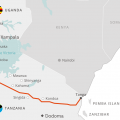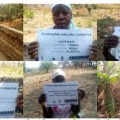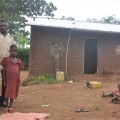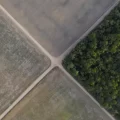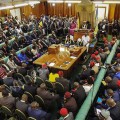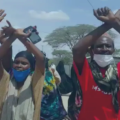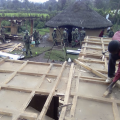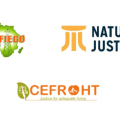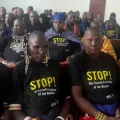Open letter to African Development Bank and Nordic Development Fund: Address reprisals against Paten Clan
On September 9, a group of organizations that are members of the Coalition for Human Rights in Development and other allies sent an open letter to the African Development Bank and the Nordic Development Fund, calling on them to take immediate actions to address reprisals against a community in Uganda impacted by the Wadelai irrigation project.
On August 10, 2021, sixteen members of Paten Clan, a community in Pakwach District in northern Uganda, were shot at and wounded by local police and army officers, as a retaliation for their opposition to the Wadelai irrigation project which is funded by the African Development Bank (AfDB) and supported by the Nordic Development Fund (NDF).
Staff of the construction company in charge of implementing the project, together with representatives of the local authorities and the police, forcefully entered the community. When communities questioned and protested against the trespass, the local police and members of the Uganda People’s Defence Force (UPDF) started firing bullets and teargas to disperse them. 16 community members were injured.
After the shooting, the police refused to hand them the forms for documenting the injuries suffered, meaning they were unable to easily access healthcare in government health centres. The day after, UPDF officers arrested and beat up four women, including one pregnant woman, while they were on their way to fetch water. These attacks are just the latest example of the ongoing retaliations faced by community members and human rights defenders in Pakwach District, who are being targeted for their opposition to the government’s acquisition of their land for agricultural production under the Wadelai Irrigation Project that they are concerned will impact their livelihoods and way of life.
Nine members of the community have also been criminalised following the protests. They have been accused of sabotaging the project by local police and are currently out on bail. Two human rights defenders who volunteer with local human rights organisation, Buliisa Rural Initiative for Development (BIRUDO), who are also local civil servants have also been criminalised. They have been summoned before the District’s Award and Sanction Committee and have been interdicted from their jobs – meaning they are only earning half salary, have had to hand over their passports to the Resident District Commissioner, and are not allowed to leave Pakwach district – after having supported the community’s rejection of the land acquisition.
Buliisa Rural Initiative for Development (BIRUDO), a local human rights organisation which works to improve the quality of life of local communities through information sharing, sensitization, advocacy and networking for sustainable development, has also been suspended from operating in Pakwach District by the Deputy Resident District Commissioner following their work with Paten Clan. They have been accused of supporting the community to sabotage government projects.
The community has raised concerns about the amount of land sought for the project, which would leave them with limited use for their own agricultural and other needs. The community consented to offering 365 acres (equivalent to 145 hectares) for the project but later realized that the project would actually take up 365 hectares of their land. The community feel that they were deliberately misled regarding the amount of land needed, and therefore no longer trust the project implementers.
The Wadelei irrigation project, constructed by the Ugandan company Coil Construction Company Limited, is one of the four irrigation schemes under the African Development Banks’ Farm Income Enhancement and Forestry Conservation Project (FIEFOC-2). FIEFOC-2 is set to “improve household incomes, food security, and climate resilience through sustainable natural resources management and agricultural enterprise development.” The overall cost of this project is approximately USD 91.7 million, including approximately USD 5.9 million from the Nordic
Development Fund, USD 76.7 million from the AfDB and USD 9.1 million from the Government of Uganda.
Despite widespread opposition to further land acquisition within the local communities, and despite the recent violence and arrests, Coil Construction Company Limited continues to forcefully take land from the Paten clan. During an initial conversation with the African Development Bank about the retaliations stated above, the bank staff questioned the community’s grievances while failing to mention, let alone acknowledge, the ongoing violence
and arrests perpetrated against the community by the security forces. Action must be taken by the African Development Bank and Nordic Development Fund urgently to prevent further violence from taking place.
We, the undersigned organizations, strongly condemn the retaliations against the local community. We call on the African Development Bank and Nordic Development Fund to:
● Respond urgently to the Paten Clan and the NGOs supporting them and work closely with them in addressing their concerns
● Call on the authorities to immediately halt all violence and to drop all charges against community members and BIRUDO staff/volunteers
● Call on local authorities to lift BIRUDO’s suspension to operate in Pakwach District
● Clearly communicate to all organisations and individuals involved in the Wadelai irrigation project implementation that retaliation is not tolerated by the African Development Bank and Nordic Development Fund
● Immediately investigate the recent shooting of Paten Clan members and linkages to the project implementation partners of FIEFOC-2
● Analyse the consultation process undertaken around the Wadelai irrigation project and take action to ensure that going forward, the project complies with AfDB’s Operational Safeguard 2 – Involuntary resettlement: land acquisition, population displacement and compensation
● Ensure that a functional Project-level Grievance and Redress Mechanism is established.
Signatories:
AbibiNsroma Foundation
ARTICLE 19 Eastern Africa
Arab Watch Regional Coalition
Bank Information Center
Botswana Watch Organization
Both ENDS, the Netherlands
Buliisa Rural Initiative for Development (BIRUDO)
Community Initiatives for Sustainable Development
Community Empowerment and Social Justice Network (CEMSOJ), Nepal
Community Resource Centre, Thailand
Defenders in Development Campaign
Equitable Cambodia
Foundation for Environmental Management and Campaign against Poverty (FEMAPO),
Tanzania
Front Line Defenders
Green Advocates International
International Accountability Project
International Rivers (Africa Program)
Jamaa Resource Initiatives, Kenya
Just Associates Southern Africa
Lawyers’ Association for Human Rights of Nepalese Indigenous Peoples (LAHURNIP)
Lumiere Synergie pour le Developpement
Narasha Community Development Group
Protection International Africa
Recourse, the Netherlands
Urgewald
Uganda Consortium on Corporate Accountability (UCCA)
WoMin African Allianc
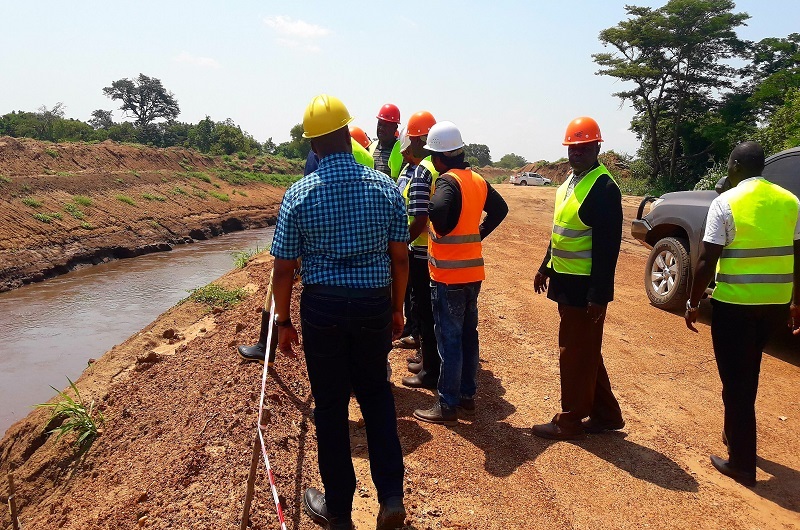

 MEDIA FOR CHANGE NETWORK2 weeks ago
MEDIA FOR CHANGE NETWORK2 weeks ago
 MEDIA FOR CHANGE NETWORK1 week ago
MEDIA FOR CHANGE NETWORK1 week ago
 MEDIA FOR CHANGE NETWORK1 week ago
MEDIA FOR CHANGE NETWORK1 week ago
 MEDIA FOR CHANGE NETWORK4 days ago
MEDIA FOR CHANGE NETWORK4 days ago
 MEDIA FOR CHANGE NETWORK7 days ago
MEDIA FOR CHANGE NETWORK7 days ago
 MEDIA FOR CHANGE NETWORK3 days ago
MEDIA FOR CHANGE NETWORK3 days ago
 MEDIA FOR CHANGE NETWORK2 days ago
MEDIA FOR CHANGE NETWORK2 days ago
 MEDIA FOR CHANGE NETWORK1 day ago
MEDIA FOR CHANGE NETWORK1 day ago
